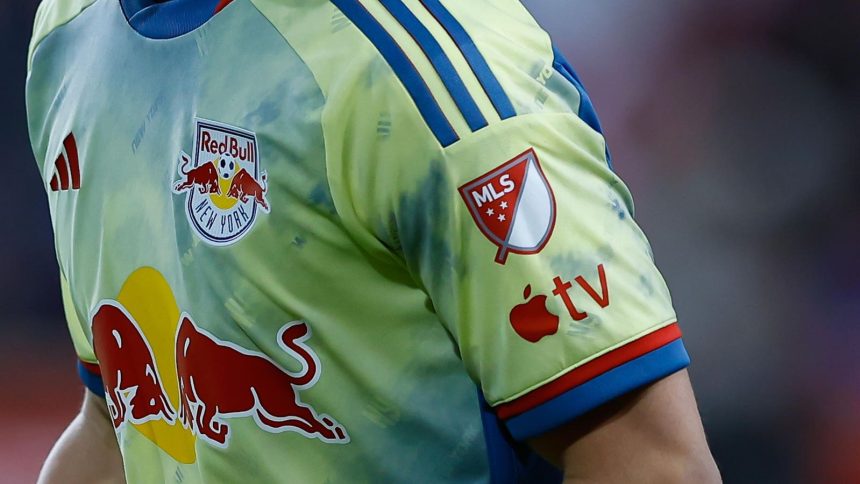The recent cancellation of MLSsoccer.com’s long-running podcast, Extratime, has sparked controversy and concern amongst dedicated MLS fans, highlighting a broader issue within the league’s media landscape: an apparent prioritization of reach over depth and quality. This shift coincides with the league’s lucrative partnership with Apple TV, a deal initially hailed for the tech giant’s reputation for sophisticated content. Ironically, the decision to discontinue a program known for insightful analysis and comprehensive coverage seems to contradict the very values Apple embodies. While the league’s media reach has undeniably expanded under the Apple TV partnership, the overall quality of coverage has arguably diminished, leaving many fans feeling underserved and disillusioned.
The rationale behind Extratime’s cancellation might appear sound on the surface. The media landscape has drastically changed since the podcast’s inception, with external coverage of MLS expanding significantly. The show seemingly lacked substantial monetization through advertising or sponsorships, and its existence could be perceived as competing with Apple TV’s own podcast venture, “Offside with Taylor Twellman.” However, the predominantly negative fan reaction suggests a deeper discontent. Extratime offered a level of insightful analysis and comprehensive league coverage that remains largely unmatched elsewhere. It consistently provided in-depth discussions, featuring prominent figures within the MLS community, and offered a nuanced perspective that appealed to seasoned fans while remaining accessible to newer followers.
The demise of Extratime is not an isolated incident but rather symptomatic of a broader trend within MLS media. Several other long-form content initiatives, including “The Word” and “The Movement,” have also been discontinued in recent years. This pattern suggests a deliberate shift away from in-depth reporting and analysis, possibly driven by a prioritization of easily digestible content aimed at attracting a wider, but potentially less engaged, audience. The recent departure of longtime MLS Fantasy contributor Schuyler Redpath further underscores this concerning trend of diminishing specialized content. This strategic shift appears to sacrifice quality and depth for breadth, a move that could alienate the league’s most dedicated supporters in the long run.
While the Apple TV partnership promised enhanced club-specific content, the onus has largely fallen on already overburdened club PR and marketing departments, often resulting in heavily team-centric narratives rather than the objective, critical analysis desired by more discerning fans. The inconsistency in matchday broadcast quality also remains a concern. While the overall broadcast product has seen improvement since the partnership’s inception, there’s still a noticeable gap in broadcasters’ familiarity with individual teams and players, a shortcoming less prevalent during the era of localized TV deals with regional sports networks. The move towards a centralized broadcasting model, while expanding reach, appears to have sacrificed some of the localized expertise and nuanced commentary that previously enriched the viewing experience.
Beyond league-produced content, the broader MLS media ecosystem, while broader, has also arguably become shallower. The dismantling of SB Nation’s network of team-specific blogs, despite their reliance on passionate, often unpaid contributors, removed a valuable source of in-depth coverage for many clubs. Though independent websites have attempted to fill the void, the quality and consistency vary significantly, and the absence of a centralized network like SB Nation hinders audience growth and accessibility. Even established print media outlets have reduced their MLS coverage in many markets, relying more on freelance contributors and desk editors rather than dedicated beat reporters, further diluting the quality and depth of journalistic scrutiny.
The current “Messi-mania” might mask these underlying issues, as the global superstar’s arrival has undeniably boosted the league’s visibility and attracted new fans. However, it remains unclear whether this surge in interest will be sustainable once Messi’s tenure concludes. The lack of investment in quality, in-depth content like Extratime raises doubts about the league’s long-term strategy for retaining these newfound fans. If MLS and its media partners were confident in their ability to convert casual viewers into dedicated followers, one would expect greater investment in enriching the fan experience through high-quality journalism and analysis, rather than scaling it back. A documentary series akin to “Drive to Survive,” slated for release next month, offers a glimmer of hope for more engaging content from Apple TV. However, two years into the partnership, the initial promise of elevated content remains largely unfulfilled, leaving many fans feeling as though they’ve traded a beloved, if imperfect, device for a sleeker but ultimately less satisfying replacement.



